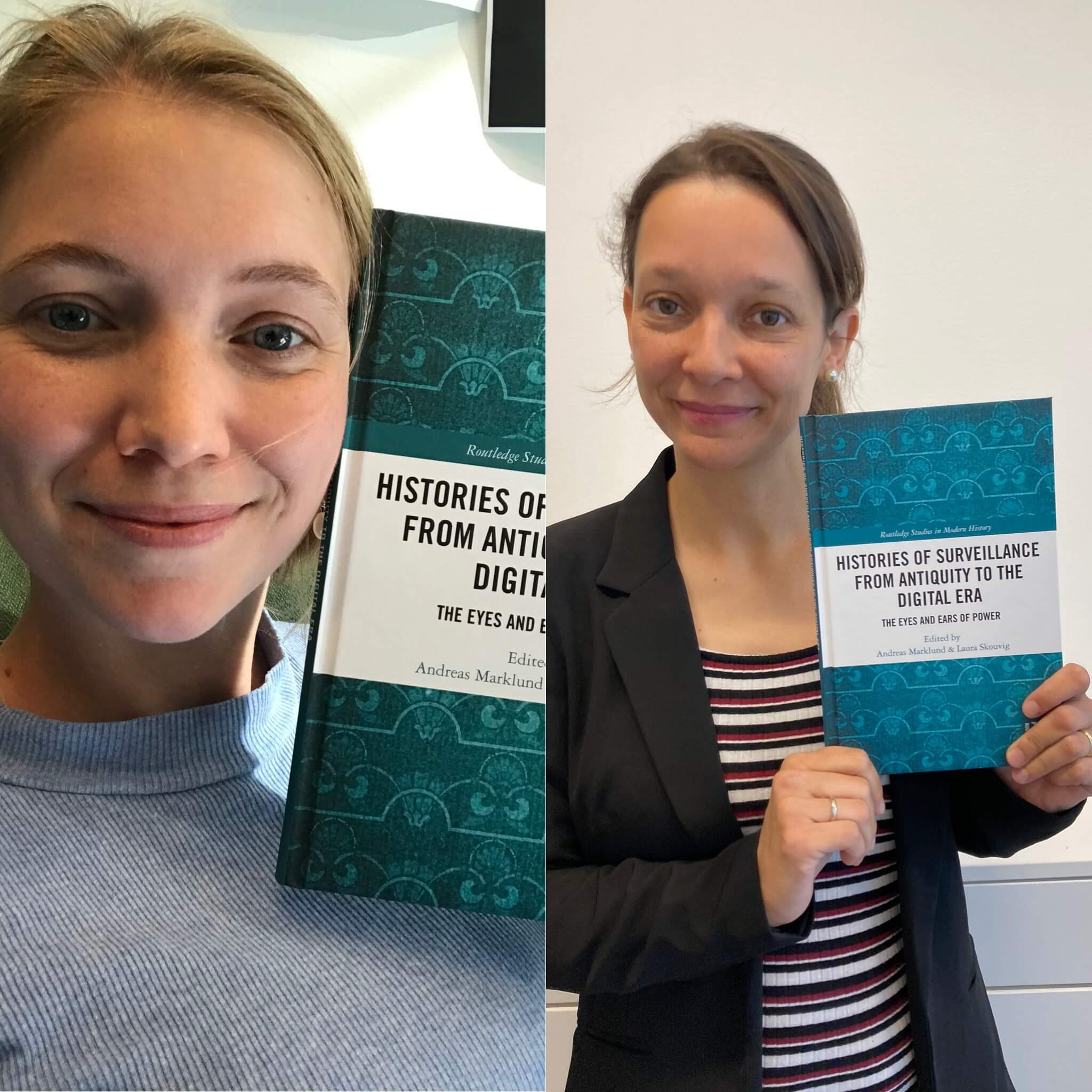TWO NEW PRIVACY PUBLICATIONS in Histories of Surveillance from Antiquity to the Digital Era: The Eyes and Ears of Power
Two PRIVACY scholars have contributed to the book Histories of Surveillance from Antiquity to the Digital Era: The Eyes and Ears of Power. Edited By Andreas Marklund and Laura Skouvig.

Anni Haahr Henriksen has written the chapter “Consciences are not to bee forced, but to bee Wonne”: the inward turn in Elizabethan homiletic discourse and the legal debate over the ex officio oath in the Court of High Commission, 1570–1593 and Natália da Silva Perez is the author of Sexual surveillance in Paris and Versailles under Louis XIV
We have asked the two scholars why we should read their contributions and what their research on the early modern period can say about present-day privacy dilemmas:
- Why should we read your article?
Anni: My article discusses what we, with a popular term, might call ‘thought surveillance’ in Elizabethan England. Elizabeth is famous for saying that she did not wish to make windows into men’s souls and my article asks whether such windows were made, how thoughts were pried into, and why. What I find in my examination of the religious and legal sources from the period is that there was a great fear of rebellion and that any disobedience, even inward and hidden, was seen as a serious threat to the stability of the throne. As a result, religious non-conformity became almost synonymous with treasonous intent and non-protestants were persecuted - and their consciences ransacked. The primary results of my study show that in this persecution, subjects defended themselves and their minds by using a language redolent with privacy concerns. And in turn that the state defended their ‘windows into men’s souls’ by making their invasion of private minds a question of public security.
Natália: In this article, I trace the efforts of the French political and religious authorities to control people's sexual lives, in other words, the authorities attempts to implement sexual surveillance. I also show instances where these efforts did not succeed: people managed to obtain some privacy here and there, sometimes in improvised ways, so that they could engane in the sexual practices that they wanted. Sometimes these attempts to obtain privacy resulted in official punishment, like jail time, but sometimes the punishment was not so obvious, like when it was in the form of an internal guilt.
- The book contains articles about surveillance from the ‘Antiquity to the Digital Era.’ Both your articles are centered on the early modern period – can you see any resemblance to present-day surveillance or Privacy issues?
Anni: Despite the significant technological developments from the 16th century to the present, actual thought surveillance is (thankfully) still not possible, but torture, black mail, and still more cunning, often digital, methods of ensnaring citizens to reveal their true colours, – be they political, religious, sexual, or other - are very much still in use. Where, then, is the line between public interest and private belief drawn and how is non-conformist thought detected? Ideas and minds continue to pose a threat to power and the pivotal debate over protecting individual privacy and defending state security is as relevant now, if not more, as in the 16th century.
Natália: Despite our lofty ideals, in reality, people's sexual choices are not just a personal, private matter. Even in Western democratic societies, we can see instances of gossip, of shaming, and even of other types of coercion and punishment for people who choose to live their sexuality in ways that don't conform with accepted norms. Studying the history of these attempts at control, that is, the history of sexual surveillance, can help us understand the problems we still face in the contemporary world.
